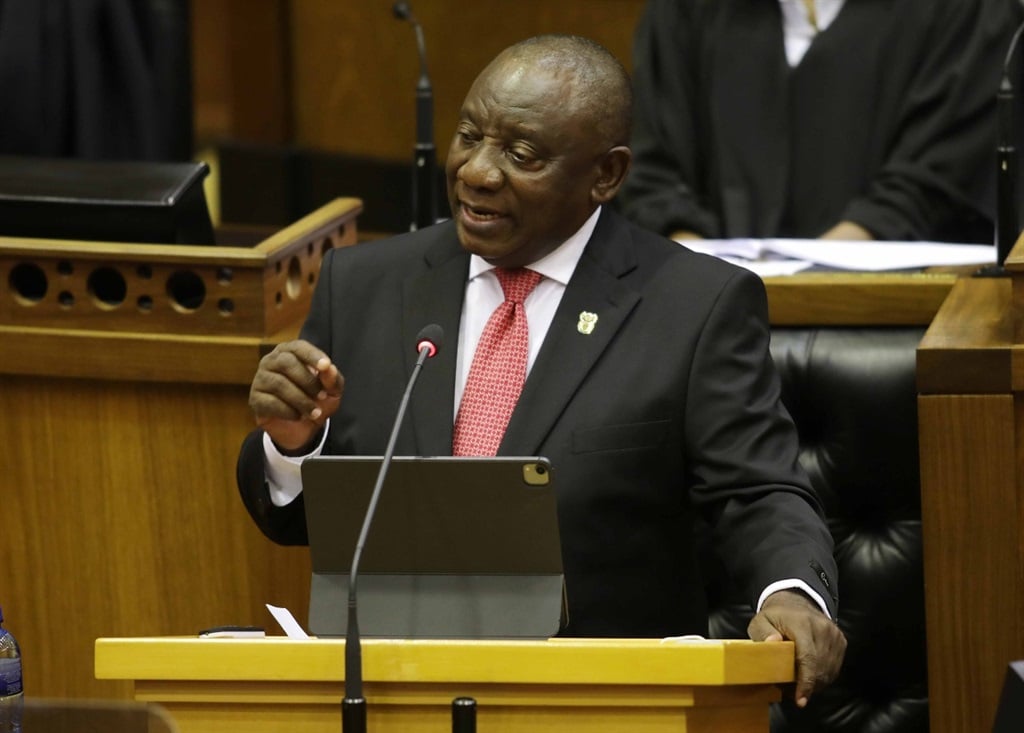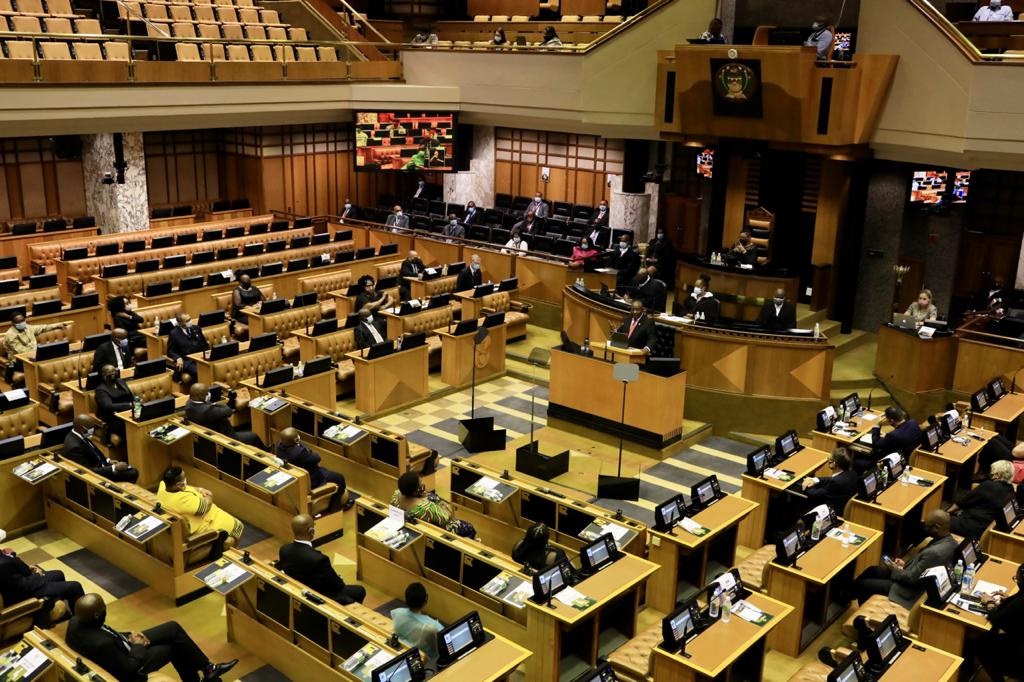
- President Cyril Ramaphosa is set to appoint yet another council to oversee corruption in government.
- Delivering his State of the Nation Address on Thursday night, he said members of a multisectoral National Anti-Corruption Advisory Council would be appointed soon.
- Ramaphosa said corruption was one of the greatest impediments to the country's growth and development.
President Cyril Ramaphosa is set to appoint yet another council to oversee corruption in government.
Corruption and state capture was one of the key elements of his State of the Nation Address in Parliament on Thursday night.
Addressing the issue of corruption, Ramaphosa said the government had started with the implementation of the National Anti-Corruption Strategy.
President Ramaphosa has laid out four pillars that the government is focused on for this year: dealing with Covid-19; accelerating economic recovery; creating jobs and inclusive economic growth; and fighting corruption and strengthen the state. | #SONA2021https://t.co/zTzRQKjnBZ
— News24 (@News24) February 11, 2021
This, he added, had laid the basis for a "comprehensive and integrated society wide" response to corruption.
"We will shortly be appointing the members of the National Anti-Corruption Advisory Council, which is a multisectoral body that will oversee the initial implementation of the strategy and the establishment of an independent statutory anti-corruption body that reports to Parliament."
Ramaphosa said corruption was one of the greatest impediments to the country's growth and development.
He also referred to the shocking revelations heard during testimonies at the Zondo commission, which laid bare the extent of state capture and related corruption.
"Testimony at the commission has shown how the criminal justice system was compromised and weakened. It is therefore vital that we sustain the momentum of the rebuilding effort that we began three years ago. There has been great progress in turning around law enforcement bodies," Ramaphosa added.
The commission has heard explosive evidence involving allegations that agents not only penetrated activist movements during Jacob Zuma's presidency, but also neutralised and manipulated some protests.
But Ramaphosa said plans were afoot to implement turnaround strategies at crime-fighting agencies.
"Critical leadership positions have been filled with capable, experienced and trustworthy professionals. There is improved co-operation and sharing of resources between the respective law enforcement agencies, enabling a more integrated approach to investigations and prosecutions."
Structure
He added the establishment of the fusion centre, a structure that brings law enforcement agencies together, had brought many cases to trial and preserved or recovered millions of rand in public funds.
"When reports started to surface last year about possible fraud and corruption in the procurement of Covid-19-related goods and services, we acted decisively to put a stop to these practices, to investigate all allegations and to act against those responsible," Ramaphosa said.
Last week, the Special Investigating Unit presented details of an ongoing probe into some 2 000 dodgy personal protective equipment contracts valued at more than R13.3 billion.
So far, allegations were received in respect of 189 state institutions and entities.
Ramaphosa also touched on the Political Party Funding Act - coming into effect on 1 April.
"This will regulate public and private funding of political parties. Among other things, it requires the disclosure of donations to parties and establishes two funds that will enable represented political parties to undertake their programmes," he said.

